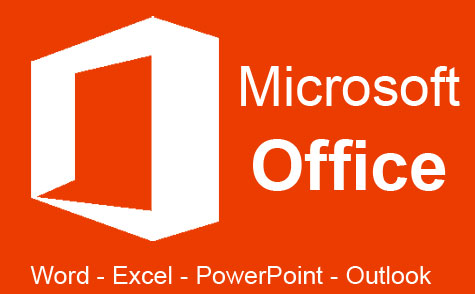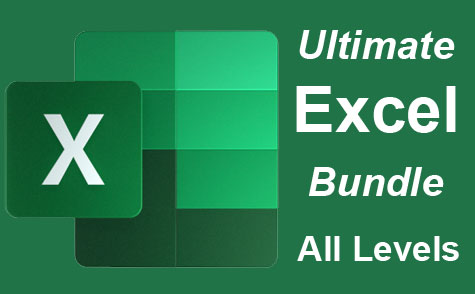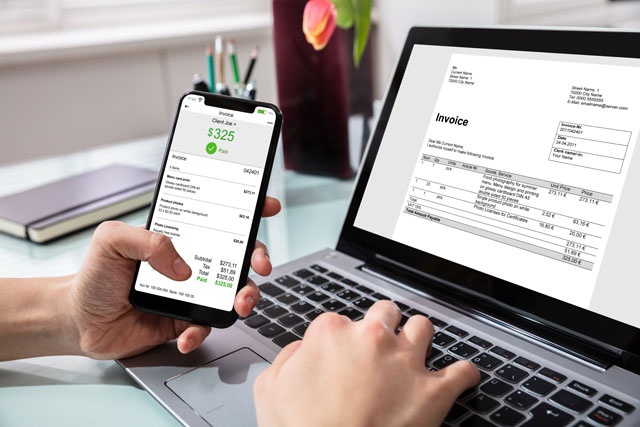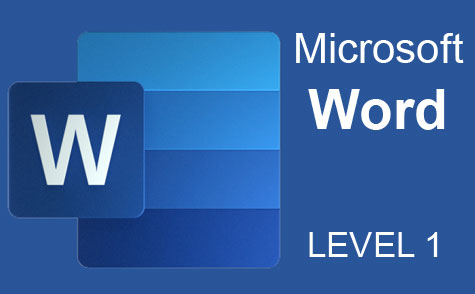Course Description
What is Microsoft Access 2019?
Unless you've used Microsoft Access before, you may be unclear as to what exactly it is and how you'll use it. Microsoft Excel, PowerPoint, and Word are very popular programs, so we're very familiar with them, if only by name. Access, however, isn't as widely used or discussed, so before we begin this course, it's important to look at what this software program does, and how it will help you.
Microsoft Access is an information management tool that allows you to store, report, and analyze information. If you're trying to use Excel to manage large amounts of information, then chances are Microsoft Access will be helpful to you.
You see, a spreadsheet program such as Excel is great if you want to maintain and calculate small bits of information. It's easy enough to use when you want to create a spreadsheet, enter data, create formulas, etc.
Excel makes it very easy to sort, filter, and format quickly. That said, though, Excel is not ideal for handling hundreds of records if you have one thing you need to track. It's easy to have errors, and that makes analysis, summing, and reporting difficult.
- Completely Online
- Self-Paced
- Printable Lessons
- Full HD Video

- 6 Months to Complete
- 24/7 Availability
- Start Anytime
- PC & Mac Compatible
- Android & iOS Friendly
- Accredited CEUs

Learning Outcomes
- Describe what a database is how it differs from a spreadsheet and what the capabilities of MS Access are.
- Describe what database objects are.
- Demonstrate navigating the MS Access interface.
- Demonstrate creating your first database.
- Demonstrate using object views in Access.
- Demonstrate using forms.
- Summarize controls and formatting forms.
- Describe what queries are and why they are important.
- Describe using criteria, operators, and wildcards.
- Describe parameter queries.
- Describe creating and using relationships.
- Define normalization.
- Define calculated expressions.
- Describe summarizing data using aggregate queries.
- Demonstrate designing and customizing your report.
- Describe methods for importing and exporting data in your database.
- Demonstrate mastery of lesson content at levels of 70% or higher.
Assessment Guide
| Assessment | Points |
|---|---|
| An Introduction | 1 points |
| Lesson 1 Exam | 3 points |
| Lesson 2 Exam | 3 points |
| Lesson 3 Exam | 5 points |
| Lesson 4 Exam | 5 points |
| Lesson 5 Exam | 4 points |
| Lesson 6 Exam | 5 points |
| Lesson 7 Exam | 5 points |
| Lesson 8 Exam | 5 points |
| Lesson 9 Exam | 5 points |
| Lesson 10 Exam | 8 points |
| Lesson 11 Exam | 5 points |
| Lesson 12 Exam | 3 points |
| Lesson 13 Exam | 5 points |
| Lesson 14 Exam | 5 points |
| Lesson 15 Exam | 5 points |
| Lesson 16 Exam | 3 points |
| Lesson 17 Exam | 4 points |
| Lesson 18 Exam | 5 points |
| Lesson 19 Exam | 3 points |
| Lesson 20 Exam | 6 points |
| Lesson 21 Exam | 4 points |
| The Final Exam | 80 points |























